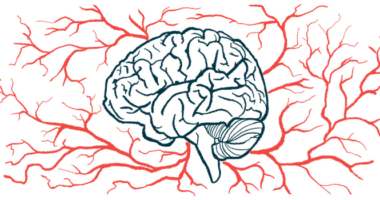How I Manage Fatigue With Sickle Cell Disease
Light exercise, vitamin intake, and monitoring sleep patterns helps this columnist

My main focus in managing sickle cell disease is preventing vaso-occlusive crises, the symptom I struggle with most. However, due to the seasonal change in weather, fatigue is another common sickle cell symptom that has been difficult for me in recent weeks.
On a typical day, I exist in a state of negative energy, so I am usually pushing past those limits. As a result, I am always tired, especially during the colder months. It’s frustrating because I want to continue doing everything I intend to do but my body just won’t let me.
Learning how to manage fatigue has become an art. Following are some of the things I’ve learned.
Physical activity
As hard as it is initially, I’ve realized that staying active when feeling fatigued benefits me significantly in the long run. It is a balancing act to be active and have fatigue, because it could trigger a crisis. I’ve learned to listen to my body when it is at its limit before a crisis happens. Personally, a little bit of exercise at least twice a week has decreased my overall fatigue.
Vitamins and supplements
I’m usually terrible at taking tablets every day, but mixing and matching the methods of vitamin intake has helped me incorporate them into my daily routine. Some of my vitamins are soluble, others are in liquid form, and others are tablets. As mundane as it sounds, this strategy makes it easier for me to take the vitamins and supplements I need to boost my energy levels.
Sleep
Having a good sleep pattern seems an obvious fix. However, it is not only the duration of sleep that matters, but also the quality. I have a smartwatch that monitors my sleep. Suppose I had poor quality sleep the previous night. By monitoring it I know what to expect that day. With this information, I can try to factor in a nap or keep activities to a minimum. This way, I can avoid doing too much, which may trigger a crisis.
Saying no
Learning to say no has been beneficial to my well-being. I was never comfortable saying no when my only reason was being tired. However, at this stage, I realize that’s more than enough reason to say no, especially with sickle cell. I may miss out sometimes, but my health is vital. This confidence allows me to monitor my fatigue levels better than when I constantly push past my limits.
What helps you manage your fatigue? Please share in the comments below.
Note: Sickle Cell Disease News is strictly a news and information website about the disease. It does not provide medical advice, diagnosis, or treatment. This content is not intended to be a substitute for professional medical advice, diagnosis, or treatment. Always seek the advice of your physician or other qualified health provider with any questions you may have regarding a medical condition. Never disregard professional medical advice or delay in seeking it because of something you have read on this website. The opinions expressed in this column are not those of Sickle Cell Disease News or its parent company, Bionews, and are intended to spark discussion about issues pertaining to sickle cell disease.








Martisha
As a caregiver, my son struggles with fatigue. He’s 22 years old. He is trying to figure it out. On days he has energy, he tries to complete as many task as possible. I do not agree with his method, but I support him.
Dunstan Nicol-Wilson
Hi Martisha. Thanks for your comment. Fatigue is really hard to manage, and as a caregiver for your son this important to help him find the right balance in managing it. I'm sure you'll find a method you can both agree on.